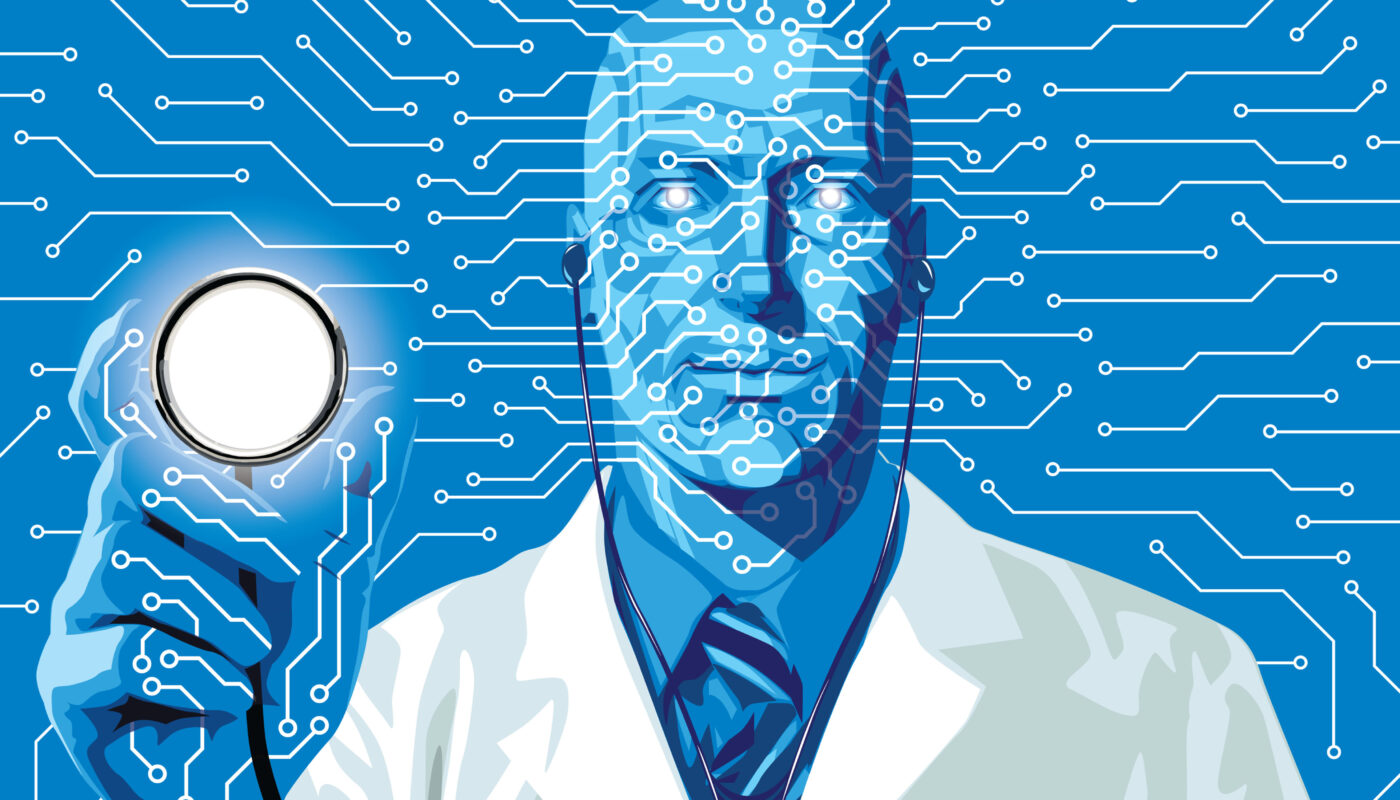Artificial intelligence diagnostics hold huge potential to revolutionize disease diagnosis owing to its ability to analyze vast amounts of medical data. Artificial intelligence (AI) based diagnostics tools analyze complex medical data such as clinical notes, medical images, lab results and other health records to identify patterns and make accurate diagnosis. By leveraging vast amounts of healthcare data and insights from millions of previous patient cases, AI has the ability to help clinicians arrive at a diagnosis faster while also improving accuracy of diagnosis compared to traditional diagnostic methods.
The global artificial intelligence diagnostics market is estimated to be valued at US$ 1502.9 Mn in 2023 and is expected to exhibit a CAGR of 7.9% over the forecast period 2023 to 2030. Artificial intelligence diagnostics tools are being increasingly adopted by healthcare providers to assist doctors in diagnosing a wide range of conditions from common illnesses to rare and complex diseases. AI has the potential to transform disease diagnosis by improving clinical workflows and helping clinicians spend more time with patients.
Market Dynamics
Ability to analyze vast amounts of medical data and insights from millions of patient cases is a key driver fueling growth of artificial intelligence diagnostics market. AI diagnostics tools leverage huge volumes of structured and unstructured healthcare data from various sources which helps improve diagnostic accuracy compared to conventional diagnostic methods. By recognizing patterns in complex patient information, AI aids clinicians in arriving at an accurate diagnosis faster. This is boosting adoption of AI diagnostics solutions among healthcare providers globally. Additionally, growing need to minimize diagnostic errors and reduce healthcare costs is also propelling demand for AI based diagnostics over the forecast period.
SWOT Analysis
Strength: Artificial intelligence diagnostics provide faster and more accurate diagnoses compared to manual methods. AI can analyze huge amounts of data like medical imaging and patient records. This reduces diagnostic errors and provides consistent results.
Weakness: Developing accurate AI models requires huge datasets that are not always available. There are also concerns about the explainability of AI diagnoses and loss of jobs for radiologists and pathologists. Adoption of new technologies by healthcare providers can be slow due to regulatory compliance and costs involved.
Opportunity: The growing volumes of healthcare data and computing power provides opportunities to develop more advanced AI systems. Integration of AI into existing diagnostic workflows has the potential to improve outcomes especially in developing countries with limited access to specialist doctors. Aging populations will drive demand for technologies that can expand access to quality healthcare.
Threats: Data privacy and security issues could undermine user trust in AI diagnostics systems. Over-reliance on AI results without human oversight may also arise legal and safety issues. High development costs of these systems pose market entry barriers for small players. Competing technologies for diagnostic applications can divert focus from AI if clinical evidence is not proven.
Key Takeaways
The Global Artificial Intelligence Diagnostics Market is expected to witness high growth over the forecast period due to rapid developments in deep learning algorithms and growth of digitized healthcare data.
Regional analysis: The Asia Pacific region provides significant opportunities for AI diagnostics companies due to strong economic growth, healthcare reforms, and government policies promoting digital technologies. China and India stand out with their large populations and increasing investments in biomedical research and medical imaging facilities. Partnerships between global diagnostics firms and local hospitals/research centers can help expand access to AI-powered applications and address the shortage of specialist doctors in developing countries. However, data privacy and internet connectivity issues may impede clinical adoption rates in some countries.
Key players operating in the artificial intelligence diagnostics market are Zoetis Inc., Merck & Co. Inc., Elanco, Ceva Santé Animale, Boehringer Ingelheim, Biovac, Hester Biosciences Limited, Dechra Pharmaceuticals PLC, Venky’s Limited, and Phibro Animal Health Corporation, among others. These companies are focusing on developing deep learning algorithms and AI applications for various diagnostic modalities like radiology, pathology, cardiology, and dermatology. Partnerships are also taking place between AI startups and diagnostic equipment providers to integrate AI into existing workflows.
Note:
Source: Coherent Market Insights, Public sources, Desk research
We have leveraged AI tools to mine information and compile it




